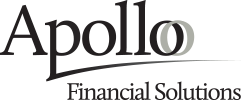
What is Leasing?
Leasing is a form of finance where the lessor (the lender) retains ownership of the item but allows the lessee (the user) to use the item for an agreed period of time known as the lease term. In return, the lessee pays an agreed fee (i.e. the lease payment to the lessor), usually in regular instalments. 100% of the cost of the asset is financed and a residual value must be left at the end of the term of the lease.
Lease terms usually range from two to five years, though some more expensive equipment may be leased over seven years. This period may be determined by the useful working life of the item, its initial cost and the likely resale market and price. Repayments are made at mutually suitable intervals – usually monthly, quarterly or annual payments may be used. Some forms of lease may allow payments to be made either in advance or arrears.
The lessee is responsible for insurance and maintenance of the leased goods. At the expiry of the lease term, the goods are normally returned to the lessor, or a further lease may be negotiated. As an alternative, the lessee may be able to buy the goods from the lessor for an amount equal to the residual amount.
Benefits of Leasing
Tax Treatment
Leasing is not a purchase, but rather it may be a tax-deductible overhead expense. Therefore, the lessee can deduct the lease payments from their business income.
Income statement management
Some leases, such as an operating lease, are considered ‘off balance sheet’ for the client, which for large businesses can benefit their balance sheet ratios.
100% financing
With leasing, there may be very little or no money down. Only the first month’s payment might be due at the time of the lease. Since a lease does not require a down payment, it is equivalent to 100% financing. That means that the lessee will have more money to invest in other revenue-generating activities.
Flexibility
As the business grows and the lessee’s needs change, they can add or upgrade at any point during the lease term through add-on or master leases. If they anticipate growth, this can be negotiated as an option when they are structuring their lease program. They may also have the option to include installation, maintenance and other services, if needed.
Types of Leases Available
Financial Lease
The most common form of leasing finance is the financial lease. Under this arrangement, many of the features of ownership, apart from transfer of the title of the goods, are passed to the lessee. Repayments will usually cover the initial cost of the equipment plus a profit margin for the lessor. The period over which the goods are estimated to produce income should approximate to the term of the lease.
Operating Lease
Most of the features of ownership under an operating lease remain with the lessor. The lease only covers a part of the useful life of the asset and rental payments do not account for the purchase price. The lessor must rely on the residual value of the item to cover the remainder of the initial cost and a suitable profit margin through either the second-hand market or by further leasing. It may also be known as off balance sheet leasing.
This form of lease may provide an alternative method of finance for those larger businesses that are concerned about improving their financial position via their gearing (debt to equity} and return on asset ratios.
Sale & Lease Back
A sale and lease-back arrangement allows lessees to sell their equipment to a financier for an agreed price and then lease it back via a finance lease. Sale and lease-back packages are usually only available for vehicles and equipment purchased within six months of the time of application. However, it can also be used for the borrower to sell valuable fixed assets, such as equipment or facilities.
Novated Lease
Novated leases are usually associated with the leasing of motor vehicles. They enable employees to lease a motor vehicle of their choice using a finance lease, the payments for which are deducted from their salary. The employer pays the lease rentals directly to the financier, while the employee enjoys the full benefits of the motor vehicle.



